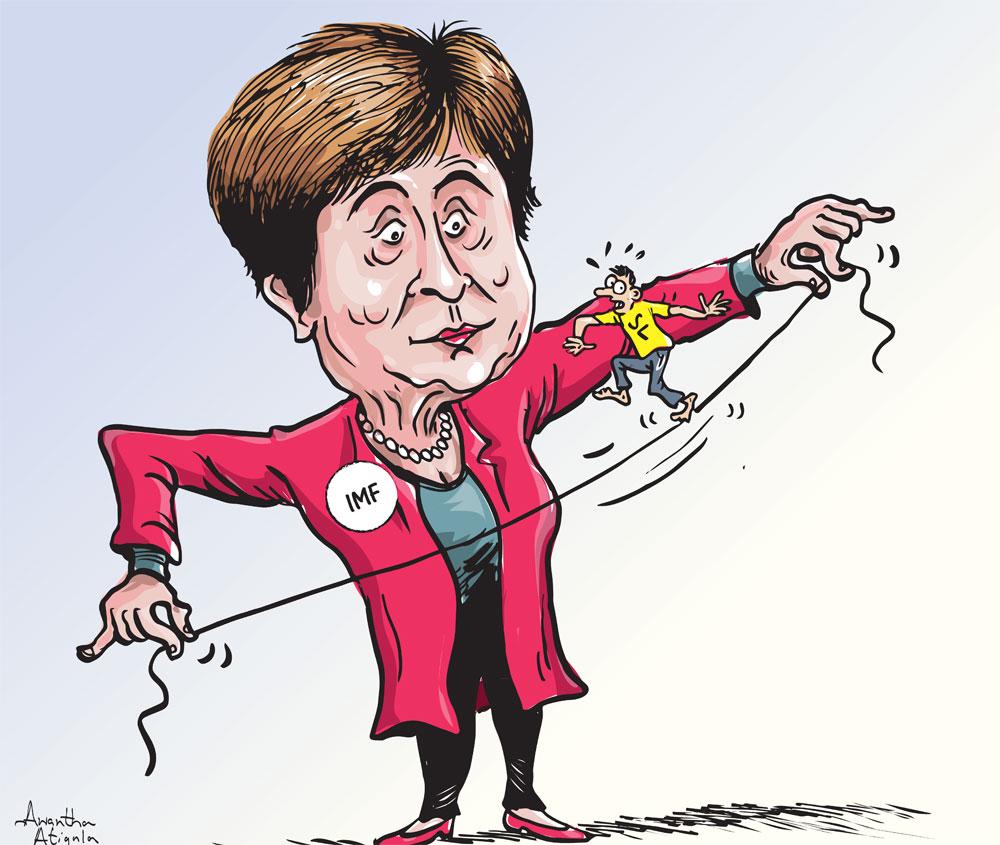Reply To:
Name - Reply Comment

Sri Lanka was able to let out a sigh of relief yesterday with the Internal Monetary Fund (IMF) announcing the approval of the second review under the Extended Fund Facility (EFF) programme which will release US$ 337 million.
While sentiments are largely celebratory, the IMF cautioned that despite the positive developments noticed, the economy is still vulnerable and the path to debt sustainability remains knife-edged.
In the announcement that came in the early hours of yesterday, the Fund asserted that “important vulnerabilities” associated with the ongoing debt restructuring, revenue mobilisation, reserve accumulation, and banks’ ability to support the recovery continue to “cloud” the outlook.
Strong reform efforts, adequate safeguards, and contingency planning will help mitigate these risks.
“To restore fiscal sustainability, sustained revenue mobilisation efforts, promptly finalising the debt restructuring in line with programme targets, and protecting social and capital spending remain critical.
“Advancing public financial management will help enhance fiscal discipline, and strengthening the debt management framework is also needed,” IMF Deputy Managing Director and Acting Chair Kenhi Okamura said in the statement.
Monetary policy should continue prioritising price stability, supported by a sustained commitment to refrain from monetary financing and safeguard Central Bank independence.
Continued exchange rate flexibility and gradually phasing out the balance of payments measures remain critical to rebuild external buffers and facilitate external rebalancing.
Okamura asserted that restoring bank capital adequacy and strengthening governance and oversight of state-owned banks are top priorities to revive credit growth and support economic recovery.
“The authorities need to press ahead with their efforts to address structural challenges to unlock long-term potential,” he said.
Nevertheless, the Executive Directors commended the authorities’ strong performance under the Fund-supported programme, and noted reforms are bearing fruit.
“The economy has started to recover, inflation remains low, revenue collection is improving, and reserves continue to accumulate,” the IMF said.
To restore fiscal sustainability, the IMF said this requires additional revenue measures underpinning the 2025 Budget, further tax administration reforms, as well as limiting tax exemptions and making them more transparent.
They called for measures to protecting growth-enhancing and social spending, and for improving the social safety net. Directors welcomed the submission of the new Public Financial Management bill to parliament, which would strengthen fiscal discipline and establish a solid fiscal framework. They noted that further efforts to strengthen the debt management framework are also needed. Directors welcomed the progress on achieving cost-recovery in energy pricing, noting its criticality for containing risks from state-owned enterprises (SOEs).
Directors emphasised that maintaining price stability remains the top priority for monetary policy, which requires anchoring inflation expectations, continuing to refrain from monetary financing, and the gradual unwinding of government security holdings as markets allow.
They also stressed the importance of strengthening Central Bank independence. Directors underscored the need to continue building external buffers, while maintaining exchange rate flexibility to facilitate external rebalancing and preserve the credibility of the inflation targeting regime. They called for gradually phasing out the balance of payments measures.
Directors underscored the need to strengthen financial sector resilience to support the recovery. They called for swift completion of the restructuring of remaining domestic law, foreign currency loans and for adequate recapitalisation of commercial and state-owned banks.
Key priorities identified by the IMF